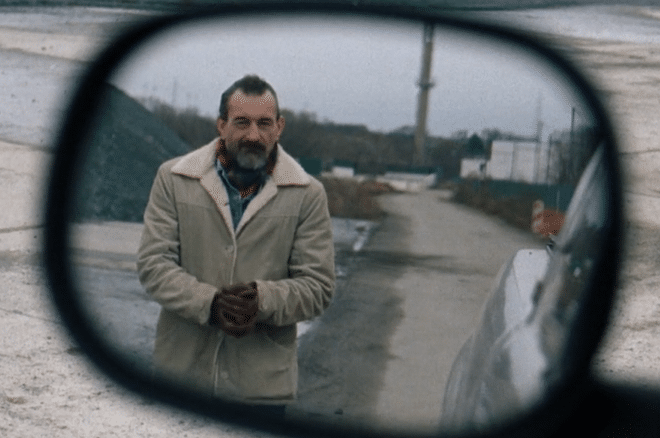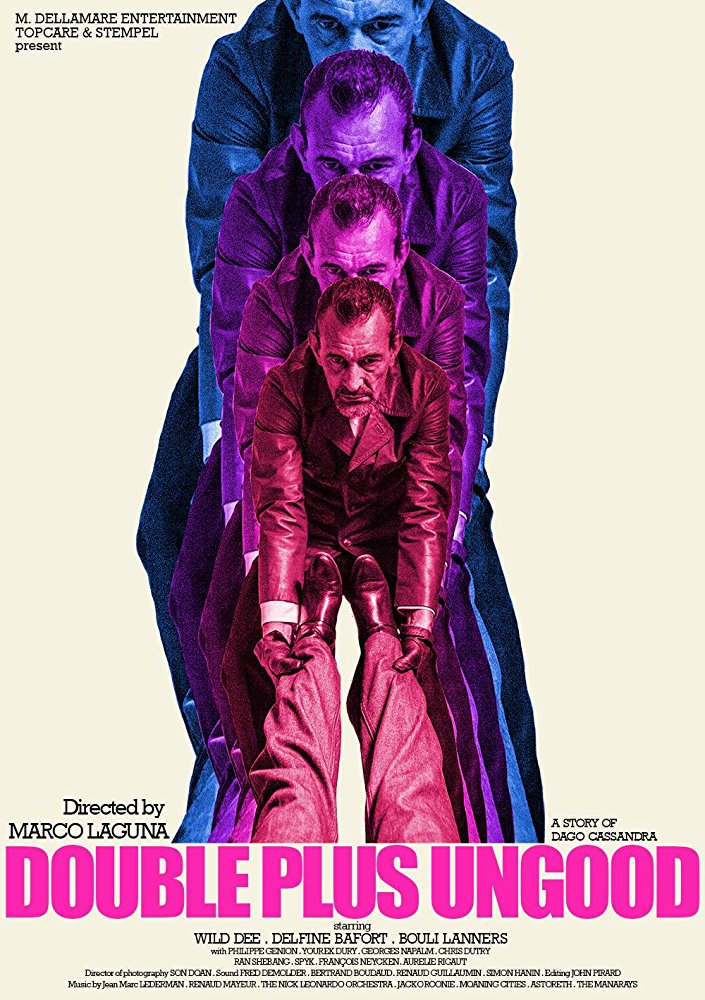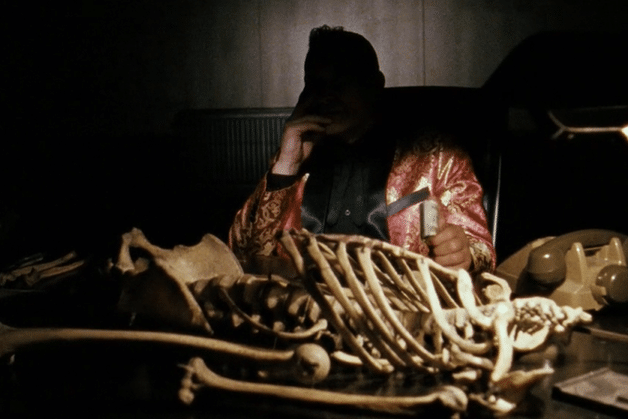 The legacy of Catholicism in French and Belgian left-field cinema seems to mean a strange predilection for Christian themes, although it finds its form in curious ways. In recent years we’ve had Calvaire, made in 2004 (retitled ‘The Ordeal’ for English audiences, which neatly strips it of its Biblical meaning), the Christmas creation horrors of Satan (2006) and of course Martyrs (2008). Now, ten years later, we have something which merges crime drama with something altogether more spiritual and not a little gonzo: voila, Doubleplusungood.
The legacy of Catholicism in French and Belgian left-field cinema seems to mean a strange predilection for Christian themes, although it finds its form in curious ways. In recent years we’ve had Calvaire, made in 2004 (retitled ‘The Ordeal’ for English audiences, which neatly strips it of its Biblical meaning), the Christmas creation horrors of Satan (2006) and of course Martyrs (2008). Now, ten years later, we have something which merges crime drama with something altogether more spiritual and not a little gonzo: voila, Doubleplusungood.
Doubleplusungood (and I’m using the one-word form here after IMDb) at least ostensibly looks like a very different deal to the films aforementioned: we start with a gritty Man Bites Dog-looking black and white intro and meet our key character, whilst a voiceover regales the audience with the pleasures of operating in the criminal underworld. But we move on, fifteen years (and into sharp colour) to pick up with the narrative and narrator again. Yep, it’s the same guy, same dark streets in an unspecified location, and now he’s on a specific mission. He’s on a theologically-tinged quest to terminate the so-called Twelve Apostles of Lucifer; organised into a so-called ‘Pyramid of Power’, our guy proceeds to ‘climb’ said pyramid, dismantling the apostles’ hold on his society as he goes.
The film therefore follows the pattern of our protagonist, Dago Cassandra, working steadily through a hitlist; the apostles he’s seeking are a disparate bunch, but overall, they appear to be low grade crooks, and (hopefully no spoilers here) they get offed in a series of increasingly grisly ways – whilst all the while, a mysterious key player seems to be monitoring proceedings from a shady office, and you get the distinct impression that he will figure prominently over the course of things. The involvement of a character called Eve is a further complicating presence, but this allows further asides about the nature of religion and morality – this is all context which clearly underpins Doubleplusungood throughout.
In this recognisable, but unnamed country, with an apparently supernatural frame and a heavy reliance on dialogue (or more often, monologue) in order to explicate all of this, one thing leaps to mind here: Tarkovsky. Like Tarkovsky, the presence of fantasy (or in the more established director’s case, sci-fi) elements is more a means of allowing us to explore characters and how they behave under extreme, unexpected circumstances than a means to study the fantastical – it’s all about the melting pot of human drama. There’s definitely something of this in Doubleplusungood. However, as the film takes place on the streets of what at least looks like a conventional European city setting, it’s far more streetwise than Tarkovsky, and there are some elements of worldly, or at least world-weary humour along the way here.
 The film, for all its unusual contextual factors, is however broadly linear: it takes its unconventional elements on a pretty straightforward journey through a series of kills, which can feel repetitive, despite the film’s efforts to draw down interest via its inventively-nasty sequences. The film certainly steers away from conventional style or approach throughout: it’s thoughtfully shot, with a wide range of locales and lots of artistic, experimental detail (even veering into psychedelia on occasion). There is undeniably something of the new-wave of French/Belgian horror cinema in the way Doubleplusungood looks, with lots of that blueish colourisation, though it’s still far more of a crime thriller overall. That said, we do see a bit of ‘implement torture’ going on here, which also chimes with those new wave horrors.
The film, for all its unusual contextual factors, is however broadly linear: it takes its unconventional elements on a pretty straightforward journey through a series of kills, which can feel repetitive, despite the film’s efforts to draw down interest via its inventively-nasty sequences. The film certainly steers away from conventional style or approach throughout: it’s thoughtfully shot, with a wide range of locales and lots of artistic, experimental detail (even veering into psychedelia on occasion). There is undeniably something of the new-wave of French/Belgian horror cinema in the way Doubleplusungood looks, with lots of that blueish colourisation, though it’s still far more of a crime thriller overall. That said, we do see a bit of ‘implement torture’ going on here, which also chimes with those new wave horrors.
This brings me to another of the film’s features, and probably the one I have most problem with: the voiceover technique employed. Doubleplusungood makes heavy use of a voiceover (by the central protagonist) to explain most of its goings-on, which – considering the mysterious elements in the film – it could have dialled back, leaving the situations to speak for themselves. Having all the elements of the plot explained along the way felt like heavy going at times, and the heavy American accent being attempted, whilst possibly intended to further the film’s sense of rootlessness, was an oddly jarring decision which raises as many questions as it answers.
Still, Doubleplusungood is stylish throughout, even if it’s a little too free-floating at times in the way it draws all its action from a largely straightforward journey (once we accept the divine calling behind the killing spree, that is). This is undoubtedly an experimental, attractive and ambitious film in anyone’s book, though perhaps needs a few more moments of key dramatic development to justify and sustain the wide range of creative styles it uses.
